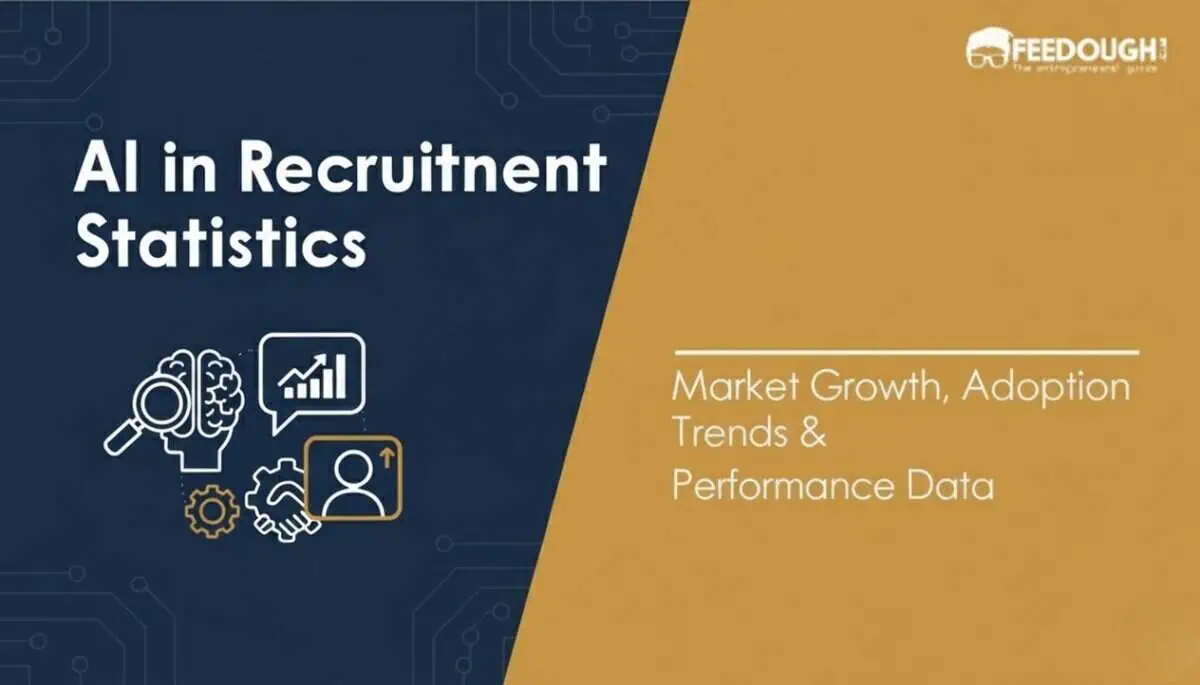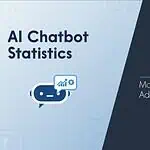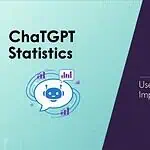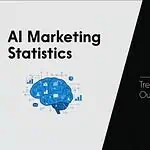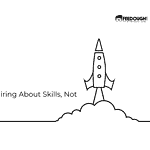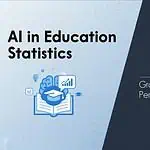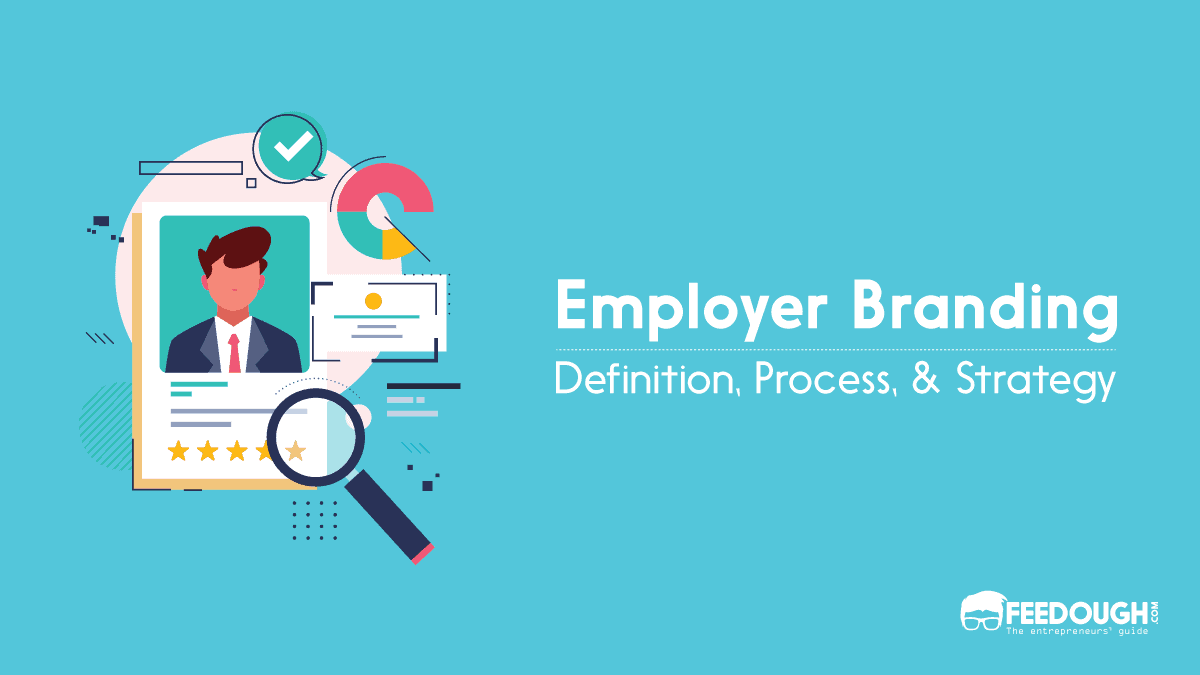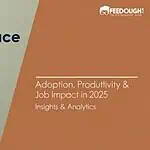While you’re still debating whether AI belongs in your hiring process or not, 88% of companies have already made the leap. The AI recruitment market has exploded to $596.16 million in 2025, and there’s a reason for this rapid adoption.
The thing is, AI isn’t just changing recruitment; it’s completely rewriting the rules. Companies using AI-powered hiring are cutting their time-to-hire by 75%, while candidates are experiencing faster, more streamlined application processes than ever before.
But here’s what you really need to know: this transformation brings both incredible opportunities and legitimate concerns. From recruiter adoption rates and candidate perspectives to hiring efficiency gains and bias challenges, we’ll walk through the data that’s shaping the future of talent acquisition. Let’s see what the numbers actually tell us about where recruitment is heading.
AI Adoption in Recruitment and Talent Acquisition
The short answer? It’s everywhere. AI has moved from being a nice-to-have to being standard practice in recruitment. According to Second Talent, 67% of organisations now use some form of AI in their recruitment process.
But that’s just the beginning. When you look at talent acquisition professionals specifically, the numbers jump even higher. According to LinkedIn Talent Solutions, 79% of talent acquisition professionals use AI tools in their daily work. That’s nearly 4 out of every 5 recruiters.
The adoption rates get even more impressive when you focus on enterprise companies. A full 78% of enterprise companies have implemented AI solutions. This makes sense when you think about it. Large companies process thousands of applications and have the resources to invest in AI technology.
What’s particularly interesting is how company size affects adoption. While 65% of large enterprises have fully automated their resume screening process, smaller companies are catching up quickly.

What recruitment tasks are being automated?
Here’s where it gets practical. AI isn’t just being used randomly – it’s targeting specific pain points in the recruitment process:
- Candidate sourcing (52%): AI tools scan job boards, social media, and databases to find potential candidates
- Initial candidate engagement (41%): Chatbots handle first contact with candidates
- Resume screening (65% of large enterprises): AI filters applications based on job requirements
The results speak for themselves. Teams using generative AI report a 20% reduction in recruiter workload. Plus, AI-assisted recruiter messages get a 44% higher acceptance rate compared to traditional outreach. They also see an 11% faster response time compared to non-AI messages.
Think about what this means for a busy recruiter managing 50+ open positions. Instead of spending hours screening resumes, they can focus on building relationships with the best candidates AI has already identified.
Candidate Perspectives on AI in Hiring
The candidate’s side of the story reveals a more nuanced picture. While organisations rush to adopt AI tools, job seekers are taking a cautiously optimistic approach to this technological shift.
The numbers show a split personality in candidate attitudes. On one hand, 58% of candidates feel comfortable with AI screening their resumes, and 43% actually prefer AI for scheduling interviews. That’s a pretty solid foundation of acceptance for basic AI functions.
But here’s where it gets interesting. The same candidates who accept AI for administrative tasks start showing reservations when it comes to the bigger picture. A significant 67% worry about algorithmic bias creeping into hiring decisions.

What aspects of AI hiring do candidates trust or distrust?
The trust breakdown is telling. While 39% believe AI can make hiring more fair by removing human prejudices, 55% fear their applications might get unfairly rejected by algorithms that miss important context.
The human element remains crucial for most job seekers. About 64% express concern about losing that personal connection during the hiring process. Plus, 42% don’t think AI can accurately assess soft skills like communication or cultural fit.
What candidates want most is transparency. An overwhelming 79% want to know when AI is being used in their application process. This isn’t about rejecting the technology – it’s about understanding how decisions affecting their careers are being made.
AI Applications Across the Recruitment Funnel
While 67% of organisations have embraced AI in recruitment, the real action happens in specific stages of the hiring funnel where automation delivers measurable results.
Resume parsing leads the charge, with 87% of companies using AI for initial screening. This makes sense when you consider AI processes applications 96% faster than manual methods. What used to take hours now happens in minutes.
Candidate sourcing follows closely at 74% adoption. AI tools scan job boards, social networks, and internal databases to identify potential matches. Then comes screening and ranking at 71% usage, where AI reduces screening time by a massive 75%.
But AI’s reach extends beyond just sorting resumes. Chatbots handle initial candidate engagement for 65% of companies, while automated scheduling cuts coordination time by 80%. Even status updates get the AI treatment, with 58% using automated communication to keep candidates informed.
How are different AI tools being deployed?
Real companies are seeing real results. Take Unilever’s transformation – they slashed hiring time from 4 months to just 4 weeks using AI screening. The financial impact? £1 million saved annually, plus 50,000 hours saved in candidate time. As a bonus, they saw a 16% increase in diversity.
Hilton’s AI chatbot tells another success story. In its first year alone, it answered 165,000 candidate questions, leading to a 75% reduction in recruiter response time and a 40% jump in application completion rates.
L’Oréal focused on quality over speed, achieving a 50% reduction in screening time while boosting candidate quality scores by 30%. Meanwhile, IBM Watson’s predictive capabilities reached 96% accuracy in identifying successful hires, resulting in 60% less turnover among AI-selected candidates.
The pattern is clear: companies aren’t just experimenting with AI anymore. They’re deploying it strategically across every stage of recruitment, from that first resume upload to final candidate communication.
AI in Recruitment Statistics by Industry
Here’s the thing about AI in recruitment – it’s not a one-size-fits-all solution. Different industries are adopting these tools at vastly different rates, and for good reason. Each sector faces unique hiring challenges that AI addresses in distinct ways.
Technology Sector: Leading the Charge
Tech companies aren’t just building AI – they’re using it to revolutionise their own hiring processes. The numbers tell a compelling story:
- 89% of technology companies now use AI recruitment tools
- Time-to-hire for technical roles has dropped by 45%
- Cost-per-hire decreased by 35% through automation
- Quality-of-hire scores improved by 28% with AI screening
- 78% leverage AI specifically for technical skills assessment
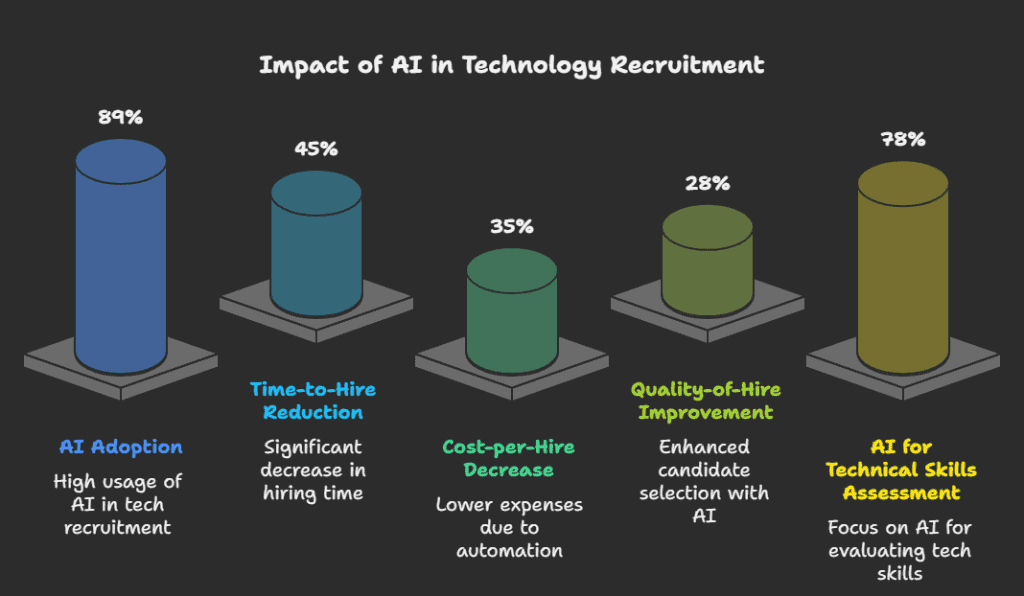
Microsoft exemplifies this transformation perfectly. Their AI-powered recruitment system delivers 40% faster technical hiring while achieving a 25% improvement in candidate diversity. That’s the kind of dual impact – speed and inclusion – that makes AI invaluable in competitive tech markets.
Retail & Hospitality: Scaling Seasonal Demands
Retail and hospitality face massive seasonal fluctuations and high-volume hiring needs. AI helps them manage these challenges efficiently:
- 73% of retail companies have implemented AI recruitment solutions
- Store manager hiring time reduced by 4 hours per week
- Seasonal hiring efficiency improved by 60%
- Customer service role screening automated by 81%
- AI chatbots handle 89% of initial candidate questions

McDonald’s showcases the scale potential here. Their AI hiring platform processes 2.4 million applications annually while delivering 70% time savings. When you’re dealing with that volume of candidates, automation becomes essential for maintaining quality standards.
Healthcare
Healthcare recruitment presents unique challenges, specialised certifications, compliance requirements, and critical skill verification. The adoption reflects these complexities:
- 68% of healthcare systems use AI recruitment tools
- License verification processes automated by 65%
- Clinical role matching accuracy improved by 42%
- Compliance screening time reduced by 38%
- Nurse recruitment cycles shortened by 3.2 weeks on average
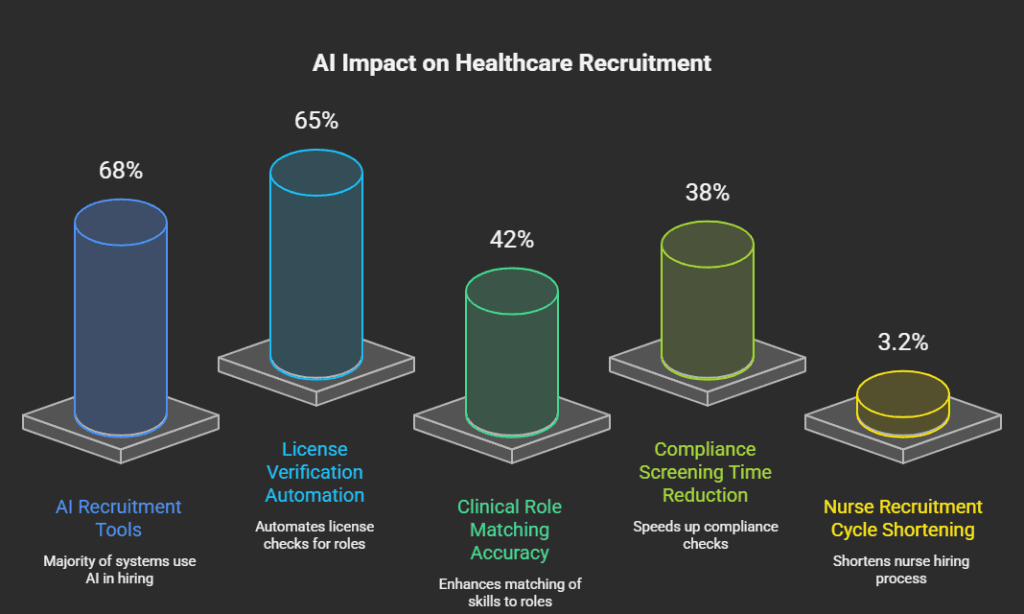
What’s interesting about healthcare is how AI helps verify specialised credentials and match candidates to specific clinical requirements. You can’t just hire anyone for a cardiac surgery position – the screening needs to be precise, and AI excels at managing these detailed qualification checks.
Recruitment Efficiency and Performance Metrics
What efficiency gains are companies achieving with AI recruitment?
Where human recruiters need roughly 200 hours to manually review 10,000 resumes, AI systems blast through the same volume in minutes. That’s not just faster – it’s a complete transformation of how recruiting works at scale.
Time-to-hire improvements show similar dramatic shifts. Companies report cutting their hiring timelines from weeks to days, with some seeing reductions of 30-40% across their entire recruitment process. Interview scheduling, which used to eat up hours of back-and-forth coordination, now happens 80% faster through automated systems that sync calendars and handle logistics instantly.
But here’s what really catches attention: response times have dropped from an average of 5 days to 30 minutes for initial candidate communications. Think about what that means for candidate experience and your company’s competitive edge in tight talent markets.
How does AI impact hiring quality and outcomes?
AI isn’t just about speed. Interview-to-offer ratios have improved significantly, meaning recruiters are spending time with better-matched candidates instead of sifting through misaligned applications. Candidate quality scores consistently track higher when AI handles initial screening.
What’s particularly compelling is retention data. Early studies suggest employees hired through AI-assisted processes show comparable or better retention rates than traditional hires, challenging the assumption that faster necessarily means lower quality.
Recruiter productivity tells the final piece of the story. With AI handling application screening and administrative tasks, individual recruiters can focus on relationship-building and strategic hiring decisions – often managing 2-3x more open positions without sacrificing quality.
Bias, Fairness, and DEI in AI Recruitment

How does AI impact diversity in hiring?
The efficiency gains are impressive, but they mean little if AI systems perpetuate unfair hiring practices. Here’s the reality: while 67% of candidates worry about algorithmic bias, the picture is more complex than pure fear or blind optimism suggests.
Take Unilever’s experience. Their AI-powered recruitment process didn’t just cut hiring time by 75% – it also led to a 16% increase in diversity among hired candidates. That’s not an accident. When designed thoughtfully, AI can actually reduce human biases that have plagued traditional hiring for decades.
But let’s be honest about the challenges. Recent academic research shows that poorly designed AI systems can amplify existing biases, particularly affecting underrepresented groups. The key difference? Companies that audit their AI tools for fairness versus those that don’t.
What bias concerns exist with AI recruitment tools?
The concerns are real and documented. AI systems trained on historical hiring data can learn and repeat past discrimination patterns. Think about it – if your company historically hired fewer women for technical roles, an AI trained on that data might continue the pattern.
That’s exactly why 73% of HR leaders now consider algorithmic fairness audits essential before deploying AI recruitment tools. Companies are investing in bias detection software, diverse training datasets, and regular algorithmic audits to catch problems before they impact candidates.
The result? We’re seeing more AI tools pass fairness audits today than three years ago, though the work is far from finished.
Candidate Experience and Engagement
Companies using AI-powered recruitment see candidate satisfaction scores jump by 35% compared to traditional processes. That’s because AI eliminates the black hole effect most job seekers know too well.
Think about it from a candidate’s perspective. Instead of wondering if your application disappeared into thin space, AI chatbots provide instant responses. Application drop-off rates plummet by 42% when companies deploy these automated assistants. Candidates get answers to basic questions immediately rather than waiting weeks for human recruiters to respond.
The response time difference is staggering. While traditional processes leave candidates hanging for 5 days on average, AI systems respond within 30 minutes. This speed translates directly into engagement – 68% of candidates who received AI-generated feedback reported feeling more positive about the company, even if they weren’t selected.
What impact do AI tools have on application completion rates?
Here’s where things get interesting. Candidate Net Promoter Scores for AI-assisted processes score 23 points higher than traditional methods. But remember Hilton’s 40% application completion increase we mentioned earlier? That wasn’t an accident.
When candidates can complete applications faster and get immediate confirmation their submission was received, they’re far more likely to follow through. Yet this ties back to those earlier concerns about losing human connection – 64% of candidates still want that personal touch at some point in the process.
Cost Impact and ROI of Recruitment AI
Companies implementing AI recruitment tools see cost-per-hire reductions of 30-75%, transforming what was once a major expense into a strategic advantage. That 200-hour screening process we mentioned earlier? The time savings translate directly to salary costs avoided.
Here’s where it gets interesting. Some companies using AI recruitment tools have reduced cost per screening candidates by 75%, while others report overall recruitment cost reductions of 31%. For a company hiring 100 people annually at $4,000 per hire, that’s $124,000 in annual savings.
The real game-changer? Reduced agency fees and external recruiting costs. Companies typically spend 15-25% of a new hire’s salary on external recruiters. AI tools can handle much of this work internally, cutting these expenses dramatically.
IBM’s experience shows another crucial metric: they achieved a 60% reduction in employee turnover after implementing AI-powered hiring. When you consider that replacing an employee costs 50-200% of their annual salary, this turnover reduction creates massive savings.
The payback timeline is surprisingly quick. Industry data shows 73% of companies achieve positive ROI within 12 months of implementing AI recruitment tools. Unilever, for instance, reports £1 million in annual savings from their AI recruitment system – money that previously went to lengthy interview processes and external agencies.
Even factoring in implementation costs, most companies see net positive returns by month 8-10, with savings accelerating as the system learns and improves.
Challenges in AI Recruitment Implementation
The journey from AI recruitment benefits to actual implementation is messier than you might expect. While the ROI numbers look impressive on paper, 67% of organisations face data quality issues during AI deployment.
Here’s what really happens behind the scenes. Integration complexity hits 54% of companies trying to connect AI tools with their existing ATS systems. Think of it like trying to plug a high-tech device into an old electrical system – sometimes it just doesn’t fit.
But data problems aren’t the only roadblock. HR teams often lack the technical skills needed to manage AI tools effectively. Plus, candidates aren’t always thrilled about AI making decisions about their careers. You’ll find pushback from job seekers who want human interaction, not algorithmic screening.
Bias and fairness concerns trouble 58% of organisations. That’s because AI systems can actually amplify existing biases if they’re trained on flawed historical data.
Why do some AI recruitment initiatives fail?
The truth is, implementation costs can be steep upfront. Many companies underestimate the resources needed for proper AI integration, training, and ongoing maintenance. When budget realities hit, projects get scaled back or abandoned entirely.
Regulatory compliance adds another layer of complexity. Companies must navigate employment laws that haven’t quite caught up with AI technology, creating uncertainty about what’s legally permissible.
You’re also dealing with change management issues. Recruiters who’ve built careers on traditional methods sometimes resist AI adoption, fearing their roles will become obsolete.
Recruiter Perspectives on AI Tools
You might think recruiters would be worried about AI taking their jobs. And you’re not wrong – some do fear being replaced by technology. But here’s what’s actually happening in recruitment.
Most recruiters using AI aren’t losing sleep over being replaced. They’re actually finding their jobs more satisfying. The reality is AI handles the stuff they hate – like screening hundreds of resumes and scheduling interviews.
Here’s the breakdown: 67% of hiring decision-makers say AI’s biggest advantage is saving time. That translates to real changes in how recruiters spend their days. Instead of drowning in administrative tasks, they’re focusing on relationship building and strategic hiring decisions.
The confidence factor matters too. When AI suggests candidates, 72% of recruiters find it most useful for candidate sourcing. But they’re not blindly following AI recommendations. They’re using it as a starting point for deeper conversations with potential hires.
What about job satisfaction? Recruiters report feeling less overwhelmed by repetitive tasks. One recruiter mentioned that AI reduced their cost per hire by 30%, which made their performance metrics look better to leadership.
The mixed feelings are real though. Some recruiters worry about losing their intuition for reading people. Others love having data to back up their gut feelings. The ones adapting best treat AI like a research assistant – helpful, but not the final decision maker.
Future of AI in Recruitment
While we’re seeing impressive adoption rates and efficiency gains today, the next five years will fundamentally reshape how companies find, evaluate, and hire talent.
Market analysts paint a picture of explosive growth ahead. The AI recruitment market, valued at $596.16 million in 2025, is projected to reach $860.96 million by 2030, a steady 7.63% compound annual growth rate that reflects consistent investment in hiring technology. What’s more intriguing is that some forecasts push even higher, with certain projections suggesting the market could exceed $1.12 billion by decade’s end.
Here’s what industry experts are predicting for the coming years:
Adoption Will Become Universal
By 2027, Gartner forecasts that 95% of large employers will integrate AI into their hiring processes. That’s a massive jump from today’s 67% overall adoption rate. The holdouts? They’ll likely be smaller companies still weighing costs versus benefits.
But there’s a twist. The same analysts predict that by 2026, 50% of organisations will require “AI-free” skills assessments as part of their recruitment strategies. This suggests a balanced approach, using AI for efficiency while preserving human judgment for critical evaluations.
Capabilities Will Expand Dramatically
The AI tools you see today are just the beginning. Industry insiders expect AI to handle full interview cycles by 2028, conducting initial screenings, asking follow-up questions, and even making preliminary recommendations. Some predict that AI will be capable of making final hiring decisions for certain roles within the next decade, though this remains contentious among HR professionals.
Investment trends support this evolution. Venture capital funding for recruitment tech startups has tripled since 2022, with most dollars flowing toward companies developing advanced AI capabilities like predictive analytics for employee retention and bias-detection algorithms.
What’s becoming clear is that AI won’t replace recruiters—it’ll augment them. The future points toward human-AI partnerships where technology handles data processing and pattern recognition while humans focus on relationship building and strategic decision-making.
A startup consultant, digital marketer, traveller, and philomath. Aashish has worked with over 20 startups and successfully helped them ideate, raise money, and succeed. When not working, he can be found hiking, camping, and stargazing.
